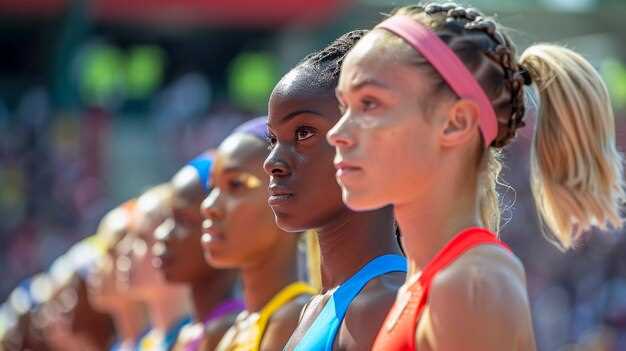
The world of motorsport has long been perceived as a male-dominated arena, where the roar of engines often overshadowed the voices and aspirations of women. However, the landscape is shifting as an increasing number of women are not just participating in racing but are also taking the reins as team owners. This surge of female leadership is not merely a trend; it signifies a deeper social movement towards equality in a sector traditionally characterized by gender disparity.
Women-owned race teams are challenging the status quo, breaking barriers and proving that talent knows no gender. These trailblazers are redefining what it means to be competitive in motorsport while simultaneously advocating for equality within the industry. Their presence is not only empowering more female drivers and engineers but is also inspiring young girls to envision a future where they too can thrive in the fast-paced world of motorsport.
The contributions of these women extend beyond the racetrack; they are driving change in corporate sponsorships, representation, and community outreach programs. By creating inclusive environments and supporting female talent, women-owned race teams are paving the way for a more equitable future in motorsport. As we delve into the impact and significance of these teams, it becomes clear that their influence is a catalyst for transformational change.
How Women-Owned Teams are Breaking Barriers in Racing
Women-owned racing teams are playing a pivotal role in reshaping the landscape of motorsport by challenging traditional gender norms and advocating for equality. These teams are proving that skill and passion are not confined to any gender, showcasing the talent of female drivers, engineers, and team managers. Their presence on the grid not only inspires future generations but also promotes a more inclusive environment within a historically male-dominated industry.
One of the significant impacts of women-owned teams is their ability to create visibility for female participants in motorsport. By reaching the racetrack, they provide a platform for women to excel in roles that were once considered inaccessible. Their successes and relentless pursuit of excellence serve as powerful testimony against stereotypes, encouraging aspiring female racers and professionals to pursue their dreams in motorsport.
Additionally, these teams are fostering collaborative initiatives aimed at cultivating equality in the sport. By partnering with organizations focused on women’s empowerment, they are actively involved in mentorship programs that help develop young female talent. This approach not only strengthens the community within motorsport but also works towards dismantling systemic barriers that have historically limited opportunities for women.
Moreover, women-owned teams bring a fresh perspective to racing strategies and team dynamics. Their unique experiences and approaches can lead to innovative solutions and improvements on and off the track. By embracing diversity, they enhance creativity and performance, ultimately contributing to the evolution of motorsport. As more women take leadership roles within the racing sphere, the call for equality continues to resonate louder, prompting changes that benefit the entire industry.
In conclusion, women-owned teams are not just participating in motorsport; they are driving significant change. Their commitment to equality and empowerment is breaking barriers, redefining the future of racing, and setting a precedent for what is possible when diversity is embraced at all levels of competition.
The Impact of Female Leadership on Team Performance and Culture

Female leadership in motorsport is becoming increasingly significant, driving change not only in team dynamics but also in overall performance. Women-led race teams often foster a culture of collaboration and inclusivity, which enhances team cohesion and morale. This shift creates an environment where each member feels valued and empowered to contribute ideas and skills, leading to innovative solutions and strategies on the track.
Studies have shown that diverse leadership helps in making more informed decisions, as varying perspectives encourage comprehensive problem-solving. Female leaders in motorsport prioritize equality, ensuring that all voices are heard regardless of gender. This commitment to equality fundamentally shifts the traditional hierarchical structures often seen in racing, promoting a more agile and responsive team setup.
The positive impact of female leadership extends beyond immediate team performance. It serves as a catalyst for attracting diverse talent, which is essential for the long-term sustainability of racing organizations. As more women assume leadership roles, they inspire future generations of female engineers, mechanics, and drivers, creating a rich pipeline of talent that enhances the motorsport industry as a whole.
Moreover, teams led by women often demonstrate strong emotional intelligence, which contributes to better conflict resolution and communication strategies. This is pivotal in high-pressure environments like motorsport, where quick decision-making and team synergy are critical for success. As more teams embrace this leadership style, the culture within motorsport is gradually evolving, emphasizing respect, support, and equality.
Strategies for Promoting Gender Equality in Motorsport Organizations

Promoting gender equality in motorsport organizations requires a multi-faceted approach that addresses various challenges women face in the industry. One effective strategy is the implementation of mentorship programs, connecting experienced women in the field with newcomers. This support system helps to build confidence and provides valuable insights into career development.
Another crucial strategy is the establishment of clear diversity and inclusion policies within organizations. These policies should outline specific goals for recruiting and retaining women in various roles, from engineering to leadership positions. Regularly reviewing progress against these goals ensures accountability and demonstrates a commitment to equality.
Training programs that focus on unconscious bias can also be beneficial. By educating all personnel about the barriers women encounter, organizations can foster a more inclusive environment. Such training should be mandatory for all levels of staff, promoting an understanding that gender equality enhances overall team performance.
Furthermore, promoting visibility for women through media exposure is essential. Highlighting the achievements of women in motorsport, whether as drivers, engineers, or team managers, can inspire future generations and showcase the talent present in the field. This visibility can be amplified through partnerships with media outlets focused on motorsport, ensuring a wider reach.
Support for women-owned race teams is another effective way to promote equality. Providing sponsorship opportunities and resources can empower these teams to compete at higher levels, demonstrating that women can excel in all areas of motorsport. Collaborations between established teams and women-owned teams can foster knowledge sharing and further enhance the industry.
Lastly, engaging with grassroots initiatives aimed at increasing the participation of young girls in motorsport is vital. By sponsoring programs that encourage girls to explore engineering, racing, and technical roles, organizations can cultivate a pipeline of female talent for the future. This long-term approach will contribute to a more balanced workforce and advance equality within the sport.












